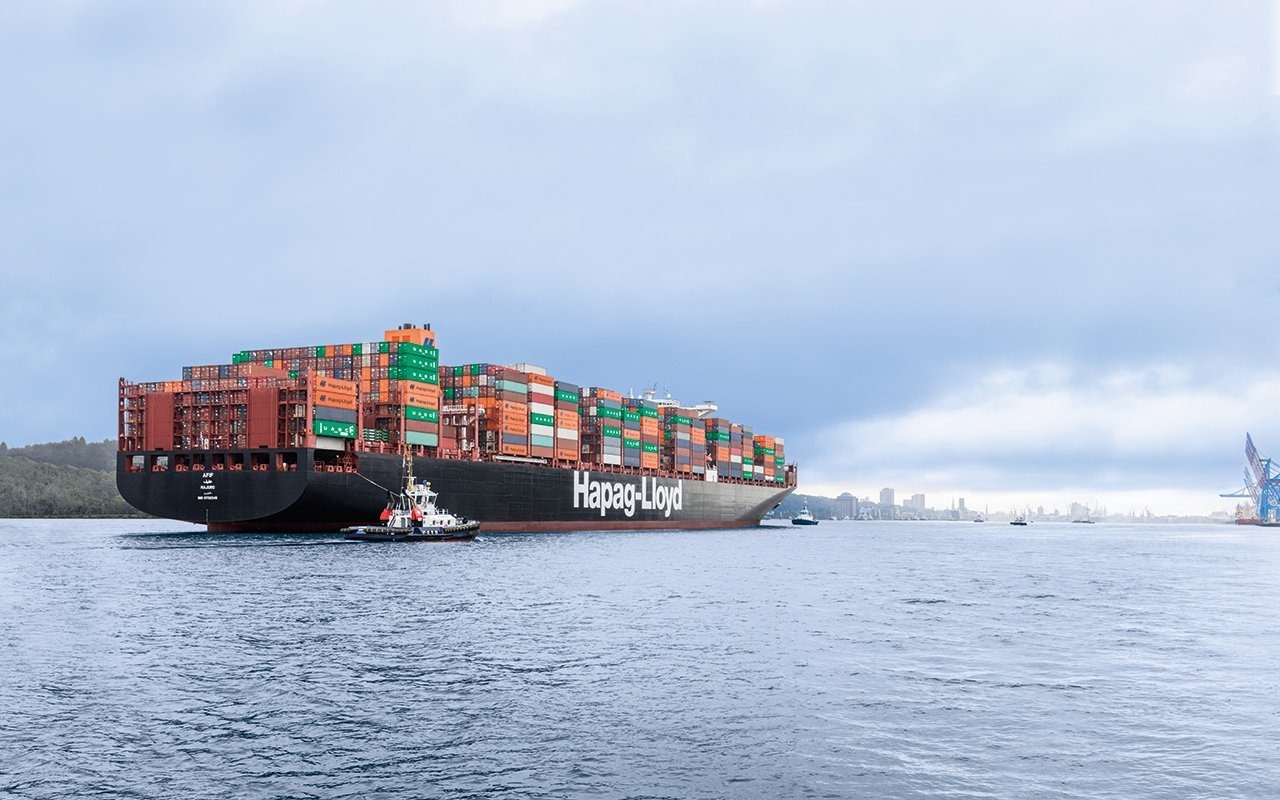
France is languishing somewhere around 15th place in the world in terms of logistics performance according to the index published by The World Bank. The French government has tasked Éric Hémar, CEO of ID Logistics and Patrick Daher, president of the Daher group to identify solutions aimed at turning this situation around. They presented their review of the current state of play during the TLF Days in the company of representatives of the transport industry and business.
Closing the competitivity gap with opponents from Europe, improving the appeal of a fulfilling but little-known sector, showing more in the way of innovative capabilities, whilst at the same time showing proactiveness in the area of sustainable development “in a context where the pressure from measures to protect the environment will be greatly increasing, whether we agree with them or not”. These are the four projects on which the president of the Union TLF, Éric Hémar, recently elected in March of this year, will be concentrating his efforts.
There will be no question of letting these ambitious projects fall by the wayside. “We will be asking the different commissions to define their priorities which will be combined into a global TLF project to be finalised before the end of September so as to define our vision. This project will be a means to guide our actions for the next three years to come”, said Éric Hémar.
A harsh reality
On the question of competitiveness TLF’s new president, who is also CEO of ID Logistics, has a fairly clear idea of which courses to take and for good reason: last February he was tasked with a mission by the government involving the competitiveness of the Supply Chain in France, alongside another of the industry’s figures, the president of Daher group, Patrick Daher.
The final report which was initially planned to be released during the month of May will finally be published in the next few weeks. However, during the TLF Days which were held on June 27th of this year, the two leaders outlined the expectations during a round table meeting which was attended by, amongst others, Philippe Varin, the president of France Industrie, and Jacques Creyssel, the Director General of the FCD (Federation of Trade and Distribution).
In his introduction Patrick Daher reminded the participants of this stark conclusion. Over the past ten years or so France has been languishing at the 15th or 16th place in The World Bank’s ratings for logistics performance year after year.
Starting from the customer's needs
To identify the reasons for this stagnation the first step for the rapporteurs was to look at the problem from a different point of view. Patrick Daher made this observation: “In France we are used to looking at logistics by starting at the infrastructures. We decided, instead, to look at the problem by starting at the customer and his needs to ensure his competitivity.”
These two specialists were determined to also look at the work already carried out down this well-trodden path. “We asked to receive all the reports that have been published on this subject, some of which are public, such as France Logistique 2025, and others that are more confidential. The result was as follows: we found reports that were particularly relevant, but the totality of their recommendations had not been globally implemented”, says Éric Hémar.
Sorting between real discrepancies and preconceived ideas
The rapporteurs came to this conclusion: warding off France’s current shortcomings undoubtably implies a change in governance and organisation so as to enable a clear vision of the system, rather than implementing isolated measures. However, they were also keen to support their analysis with a very down to earth approach. “We wanted to point out the discrepancies by using real cases. An example: A logistics wholesaler delivering to all Europe from a base in the south of the Netherlands. We worked on a relocation of this site to Germany and France and we became aware of a number of weaknesses in our supply chain”, points out Éric Hémar.
That said, care has to be taken with preconceived ideas. This example has shown that port costs in Le Havre or Rotterdam are around the same, as do their port services. In this area the obstacle is mostly psychological rather than factual as it is primarily linked to the persistent fears from the larger shippers concerning the reliability of the operations.
On the other hand, results are disappointing in terms of post-shipment. Éric Hémar points out that, “In the Netherlands and Germany almost 50% of traffic leaves via rail or water transport whereas only 13-14% leave this way from Le Havre and Marseille. This generates large differences in pricing and also allows us to draw attention to the fact that the question of competitivity is linked to that of sustainable development.”
The second preconception that has been dispelled: staff costs. In warehouses the hourly wage for order pickers is roughly the same for the three countries.
Éric Hémar says this, “However, the net salary received by the French employee is roughly 20% less than that of a German or Dutch employee.” In real estate terms, France is in the lower bracket for rent, “but the property taxes push it back into the upper bracket”. Finally, in terms of distribution, the extra cost would be between 10% and 15% if the drivers were French, points out the rapporteur.
Overly large dispersion of forces
How can these drawbacks be defeated? Éric Hémar says this: “Before bringing up the question of the State we need to take a hard look in the mirror”. To start with, at professional organisation level, the rapporteurs consider that France must overcome the present dispersal. It is not a question of contesting the legitimacy of any one organisation or to amalgamate them, but to create a “France Logistics” platform which would deal with strategic subjects common to all in the sector (training, trade attractiveness, research). In Germany there is a large federation and in the Netherlands a "Committee of Wise Men".
On the ground also, the rapporteurs advocate a radically different approach. “We must reorganise our trades so that we can be more competitive for the manufacturers. In France everyone is pulling in different directions. There is a territorial sprawl of warehouses and factories which encourage both the multiplication of trucks on the roads and the perception of logistics as being a nuisance. The primary responsibility lies with us, the entrepreneurs. In order to massify we need to concentrate on certain logistics zones”, says Patrick Daher.
“We have been living with the idea that France is the centre of Europe. Today we have to react and even more so if we project ourselves through the 5 years to come, with projects such as the Belt and Road Initiative or the development of the size of container ships”, adds Éric Hémar, who considers that in France the newly defined regions are the right scale to restructure the sector.
Accompanying the industrial reconquest
This global approach is in line with that of industry. The sector has gone through a difficult period going from 20% to 12% of GDP. Philippe Varin, president of France Industrie, made the following observation, “The decline has been halted but the problem of competitiveness remains critical. The question of the industrial reconquest is facing us.” Here too, restructuring work is under way. “We decided to recreate 16 sectors, headed up by presidents that are from the industry and no longer ministers.”, as Philippe Varin points out. Five transversal themes have been identified:
- Digital
- Innovation
- Skills
- Business acceleration
- International
Logistics play a role that is equally important in the trade sector, and even more so with the arrival of the omnichannel approach. “it is now at the very heart of the system”, is the view of Jacques Creyssel, the general director of the Federation of Trade and Distribution. From inventory management to the last mile delivery through transportation pooling, retail, industrial and supply chain trades are unquestionably more intertwined than ever.
Photo : @Anne Kerriou
Our latest articles
-
Subscriber 3 min 24/02/2026Lire l'article -
Hapag-Lloyd - Zim: a shipping deal with geostrategic implications
Lire l'article -
European road freight: the spot market is stalling
Lire l'article



